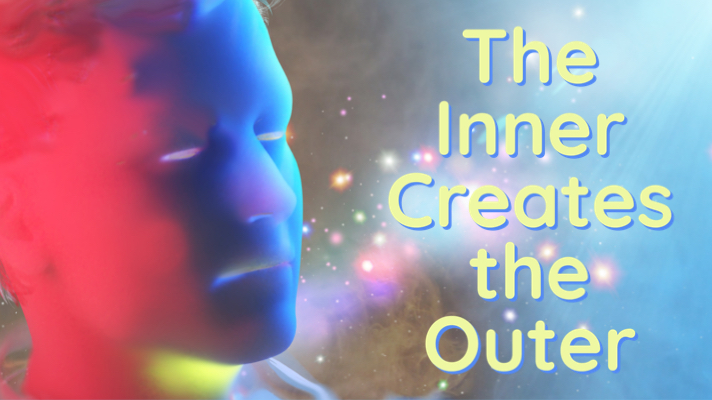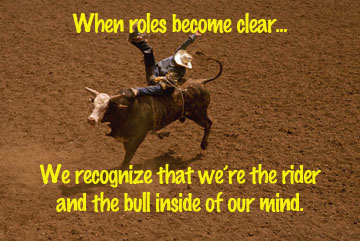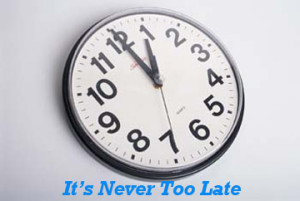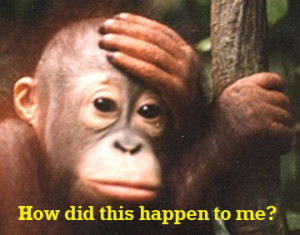False Self
Our mind works like a movie projector to create our view of the world. We experience what we’re projecting with our body. If we only had a True Self, we’d live in the Garden of Eden. But watching fruit grow on trees is boring. So we create stories.
Reality equals the True Self plus our Beliefs (false self)
A good metaphor for the false self (as designed) is temporary storage. The True Self is permanent storage. One person creates a story within their mind. This person splits up their mind into multiple characters that interact, but all the characters exist within the story writer’s mind, forming an illusory creative whole. The storyteller brings that inner creation into the outer world via “The Word.” At this point, the story writer is done. Now humans co-create to perform the story, and they’re thrilled to do that because it’s fun, and it’s just a role. They get to walk in someone else’s shoes for a short time. Each actor is a valuable part of the whole. If a few actors don’t show up, the story would dissolve.
Hollywood does this perfectly; it’s a haven for creativity. Business people also create visions then bring others in to play roles within the vision. No one is chained to these visions for life. When they finish their role, they delete the story. Their minds are virgin again.
Religion is different. Someone creates a story, and they make it true. They cast people into roles that never end. It’s like the “Hotel California.” “You can check out anytime you like, but you can never leave.” Why? You forgot that you could let go of the role.
We love story. We don’t care how wild and crazy the story is. Actors play horrible roles, but they don’t become the characters permanently. When the role is done, they drop it because they view it as a temporary role — it’s not who they are.
Roles aren’t the problem. The problem is the belief that we are our roles or that we can’t let them go. Roles come with beliefs so they cause us to retain beliefs that we don’t need or want.
The Illusion
In the illusion, the lead masculine role casts the story and then convinces others that they must play the roles they’re cast in for life. No wonder we want to die. They give us the shit roles while they get the A-list parts. Most people are playing roles in a story that they didn’t create and don’t really like — no great actor would do that.
We came here to create stories and play roles — for sure. But we don’t have the right to make lifetime roles — that is why the Lifetime channel makes crappy movies.
Getting Free of Roles
To get free, we must identify who’s playing the masculine role of the screenplay we’re cast in. What do they want from us? What do they define as good or right? What beliefs have we accepted because of that role? As we let go of the beliefs around the role, we gradually step back until one day we can see the big picture from the director’s chair. We see that our role is just a role. It isn’t our destiny, purpose, or karma. We don’t have to play it anymore.
Then we’ll see that everyone in the illusory play was an actor, even our worst enemy. We’ll applaud them, not hate them. They probably didn’t choose their role either. Most people today are playing roles cast by their ancestors in a story that was written thousands of years ago. We’re afraid to quit our roles because we think God gave them to us. The story writers said their stories were cast by God so we’d accept a role that sucked. Can you see how fucking stupid that is?
The illusion feels like hell believes everyone identifies with their role. The think they are a Jew, Christian, or Lightworker. But they aren’t. It’s a role.
We don’t let go because we become vested in the story. Let’s look at the story of Armageddon. Those who believe that the story was created by God won’t let it go. They want the story to play out to the end, and they believe that they’ll be the victors in a win-lose drama of epic quality. They’ve become so absorbed and proud of their role that they don’t feel their own misery. They have no compassion for those who will lose.
They’ve lost access to their True Self and can’t see beyond the set. Some people escape but find another role without first becoming free of the old one. “I’ll take this role where I get to ascend to the stars. Or I’ll join this religion where I get to live as a monk and not work in a job I hate everyday.” They’re making a lateral move within the illusion. They aren’t getting free. This creates conflicting roles in their mind.
Hollywood
The answer is in Hollywood. We’re all actors. We take a part in a marriage, culture, religion, business, or political group; and when we’ve had enough, we should simply let go and drop the role without guilt, shame, or fear of judgment. We’d return to home base — our True Self.
If we want a different role, we first clear out the old role. We can’t play Forest Gump if we’re still playing Idi Amin. Once we’ve broken free of old roles, we’re back to zero again. We’ll choose new roles and only play characters in stories that we love. We’ll make sure we trust our director. Or we’ll write our own story.
But what about those collective dramas that have unhappy endings like Monsanto, Armageddon, or businesses that harm the earth. This answer is on Broadway. How many actors does a play have to lose before the show can’t go on? We’re those actors; we can drop our roles and eventually bring down the production.




